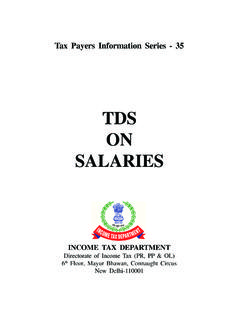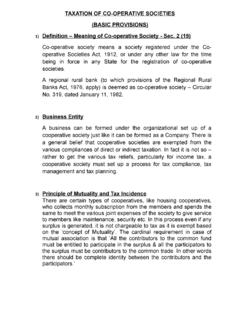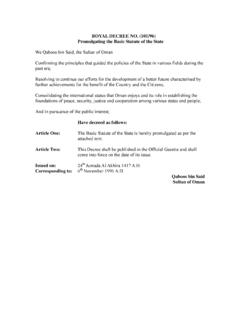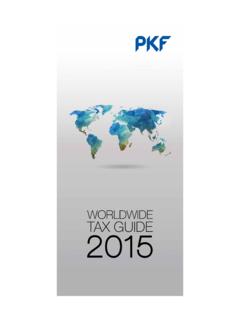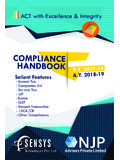Transcription of WEALTH TAX Basic provisions - Income Tax …
1 WEALTH TAX. Income -tax is levied on the Income of the taxpayer, whereas WEALTH tax is levied on the WEALTH of the taxpayer. WEALTH tax is governed by WEALTH Tax Act, 1957. In this part you can gain knowledge on various provisions of WEALTH Tax Act, 1957. Here, it is to be noted that WEALTH -tax Act, 1957 is abolished 1-4-2016. Basic provisions Following are the Basic provisions of WEALTH -tax Law which are to be kept in mind: WEALTH -tax is levied on following persons only: o an individual;. o a Hindu undivided family (HUF); and o a company. Persons other than individuals, Hindu Undivided Families (HUFs) and companies are not liable to pay WEALTH tax. A partnership firm is not liable to WEALTH tax, but the assets of the partnership firm are charged to tax in the hands of the partners of the firm in the form of Interest in partnership firm . In other words, a partnership firm is not liable to WEALTH tax, but the value of the assets held by the firm is to be ascertained and this value will be distributed amongst the partners of the firm and will be charged to tax in the hands of the partners.
2 However, where a minor is admitted to the benefits of partnership in a firm, the value of the interest of such minor in the firm shall be included in the net WEALTH of the parent of the minor. Similarly, an association of persons (not being a co-operative housing society) is not liable to WEALTH tax, but the assets of the association of person are charged to tax in the hands of its members in the form of Interest in partnership firm . WEALTH tax is levied on the net WEALTH owned by a person on the valuation date, , 31st March of every year. WEALTH -tax is levied at 1% on the net WEALTH in excess of Rs. 30,00,000. Entities which are not liable to WEALTH -tax Following entities are not liable to pay WEALTH -tax: (a) any company registered under section 25 of the Companies Act;. (b) any co-operative society;. (c) any social club;. (d) any political party;. (e) a Mutual Fund specified under section 10(23D) of the Income -tax Act; and (f) Reserve Bank of India Manner of computation of net WEALTH WEALTH tax is levied on net WEALTH owned by the taxpayer on the valuation date.
3 Net WEALTH ( , taxable WEALTH ) of every person is computed in following manner: [As amended by Finance Act, 2018]. Particulars Amount Ascertain value of taxable assets as per valuation rules XXXXX. prescribed in this regard (i). Add: Assets clubbed with the assets of taxpayer ( , XXXXX. deemed assets) (ii). Less: Exempt asset (iii) (XXXXX). Gross value of asset XXXXX. Less: Debt , loan taken to acquire the asset at (i) and (XXXXX). (ii). Taxable WEALTH XXXXX. WEALTH tax is to be paid at 1% on the net WEALTH in excess of Rs. 30,00,000. No cess or surcharge is levied on WEALTH tax. WEALTH -tax and residential status A person may own assets in India as well as abroad. The taxability of an asset will be determined on the basis of the residential status and the location of the asset. Residential status will be ascertained in the same manner as is determined under Income -tax Law. Following persons are liable to pay WEALTH -tax in respect of their world assets ( , on the assets located in India as well as on the assets located outside India): (a) A resident and ordinarily resident individual, who is an Indian citizen.
4 (b) A resident and ordinarily resident HUF. (c) A resident company. Following persons are liable to pay WEALTH -tax only in respect of assets located in India. In other words, following persons are not liable to pay WEALTH tax in respect of assets owned by them and which are located outside India: (a) An individual who is not a citizen of India (whether resident and ordinarily resident or not). (b) A resident but not ordinarily resident individual and a resident but not ordinarily resident Hindu Undivided Family. (c) A non-resident (may be individual or HUF or company). Assets covered under WEALTH -tax WEALTH tax is levied on the value of assets. The term assets is defined under Section 2(ea) of the WEALTH -tax Act. Hence, WEALTH tax is levied only on those properties which are covered in the definition of the term assets as defined in the WEALTH -tax Act. Following items are covered in the definition of the term assets.
5 [As amended by Finance Act, 2018]. Any building or land appurtenant thereto, whether used for residential or commercial purposes or for the purpose of maintaining a guest house or otherwise. It will also include a farm house situated within 25 kilometers from local limits of any municipality or a Cantonment Board. However, following buildings or land appurtenant thereto are not included in this category : o A house meant exclusively for residential purposes and which is allotted by a company to an employee or an officer or a director who is in whole- time employment, having a gross annual salary of less than Rs. 10,00,000. o Any house (may be residential house or used for commercial purposes). which forms part of stock-in-trade of the taxpayer. o Any house occupied by the taxpayer for the purposes of any business or profession carried on by him. o Any residential property which has been let-out for a minimum period of 300 days in the previous year.
6 O Any property in the nature of commercial establishments or complexes. Motor cars (other than those used by the taxpayer in the business of running them on hire or held as stock-in-trade). Jewellery, bullion, furniture, utensils or any other article made wholly or partly of gold, silver, platinum or any other precious metal or any alloy containing one or more of such precious metals. However, this category does not include any of the above items held as stock-in-trade by the taxpayer. Yachts, boats and aircrafts (other than those used by the taxpayer for commercial purposes). Urban land (*), other than following : o Land on which construction of a building is not permissible under any law for the time being in force; or o Any land on which construction is done with the approval of the appropriate authority; or o Any unused land held by the taxpayer for industrial purposes for a period of two years from the date of its acquisition by him; or o Any land held by the taxpayer as stock-in-trade for a period of ten years from the date of its acquisition by him.
7 O Land classified as agricultural land in the records of the Government and which is used for agricultural purpose. (*) Urban land means a land situated: a. Within jurisdiction of municipality, notified area committee, town area committee, cantonment board and which has a population of not less than 10,000;. range of following distance measured aerially from the local limits of any municipality or cantonment board: i. not being more than 2 KMs, if population of such area is more than 10,000 but not exceeding 1 lakh;. [As amended by Finance Act, 2018]. ii. not being more than 6 KMs , if population of such area is more than 1 lakh but not exceeding 10 lakhs; or iii. not being more than 8 KMs , if population of such area is more than 10 lakhs. "Population" means the population according to the last preceding census of which the relevant figures have been published before the date of valuation. Cash in hand, in excess of Rs.
8 50,000 in case of an individual and HUF. In case of any other person, any amount not recorded in the books of account. Net WEALTH to include certain assets Generally, WEALTH tax is to be paid on assets owned by the taxpayer on the valuation date. However, in the following cases, though assets are held by other persons, yet they are to be included in the net WEALTH of the taxpayer, , assets of other persons are clubbed with the WEALTH of the taxpayer. Asset transferred by an individual without adequate consideration to any of the following persons shall be included in the net WEALTH of such individual: o Assets transferred to the spouse, not being a transfer in connection with an agreement to live apart. o Assets transferred by an individual to his/her son's wife. o Assets transferred to a person or an association of persons for the immediate or deferred benefit of the individual, his/her spouse or his/her son's wife.
9 Assets belonging to minor child of an Individual will be included in the net WEALTH of such individual. However, no clubbing will be done in respect of assets belonging to a minor child suffering from any disability specified in section 80U. of the Income -tax Act or a minor married daughter of the individual. Further, clubbing provisions will not apply in respect of any asset acquired by the minor out of his Income arising to him by: (a) manual work done by him; or (b) activity involving application of his skill, talent or specialized knowledge and experience. Note: where the assets held by a minor child are to be included in computing the net WEALTH of an individual, such assets shall be included, . a) where the marriage of his parents subsists, in the net WEALTH of that parent whose net WEALTH (excluding the assets of the minor child so includible under this sub-section) is greater ; or b) where the marriage of his parents does not subsist, in the net WEALTH of that parent who maintains the minor child in the previous year as defined in section 3 of the Income -tax Act, and where any such assets are once included in the net WEALTH of either parent, any such assets shall not be included in the net WEALTH of the other parent in any succeeding year unless the Assessing Officer is satisfied, after giving that parent an opportunity of being heard, that it is necessary so to do.
10 Assets transferred under revocable transfer will be clubbed in the net WEALTH of the transferor. [As amended by Finance Act, 2018]. Interest ( , assets) in a partnership firm or an association of persons. A. partnership firm or an AOP is not liable to WEALTH -tax; however, value of taxable assets of the firm or AOP is to be computed in the prescribed manner and then the value of interest of each partner/member in such asset is included in the net WEALTH of the partner/member. However, where a minor is admitted to the benefits of partnership in a firm, the value of the interest of such minor in the firm shall be included in the net WEALTH of the parent of the minor. If an individual transfers his property to his HUF without adequate consideration or treats his property as the property of his HUF, then such asset will be included in the net WEALTH of the transferor. Further, if the converted property becomes the subject-matter of a total or a partial partition among members of the family, the converted or transferred property or any part thereof, which is received by the spouse of the transferor, is deemed to be the asset of the transferor and is includible in his WEALTH .
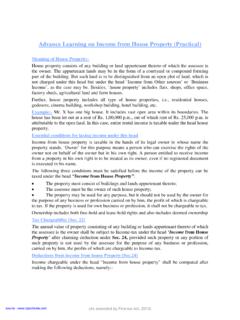
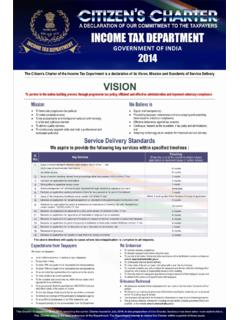
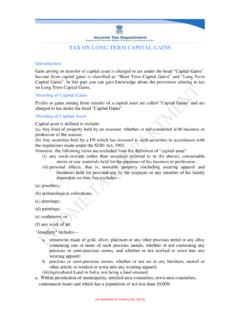
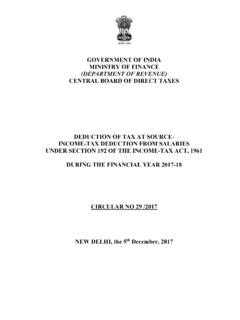

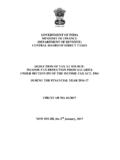
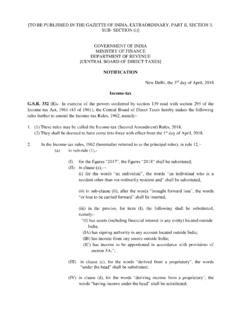
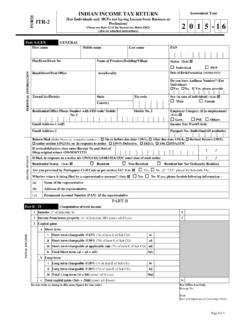
![FORM NO. 3CA [See rule 6G(1)(a)] Audit report …](/cache/preview/5/e/9/7/6/b/7/4/thumb-5e976b74d05a63207c471fc48a86f3e5.jpg)
